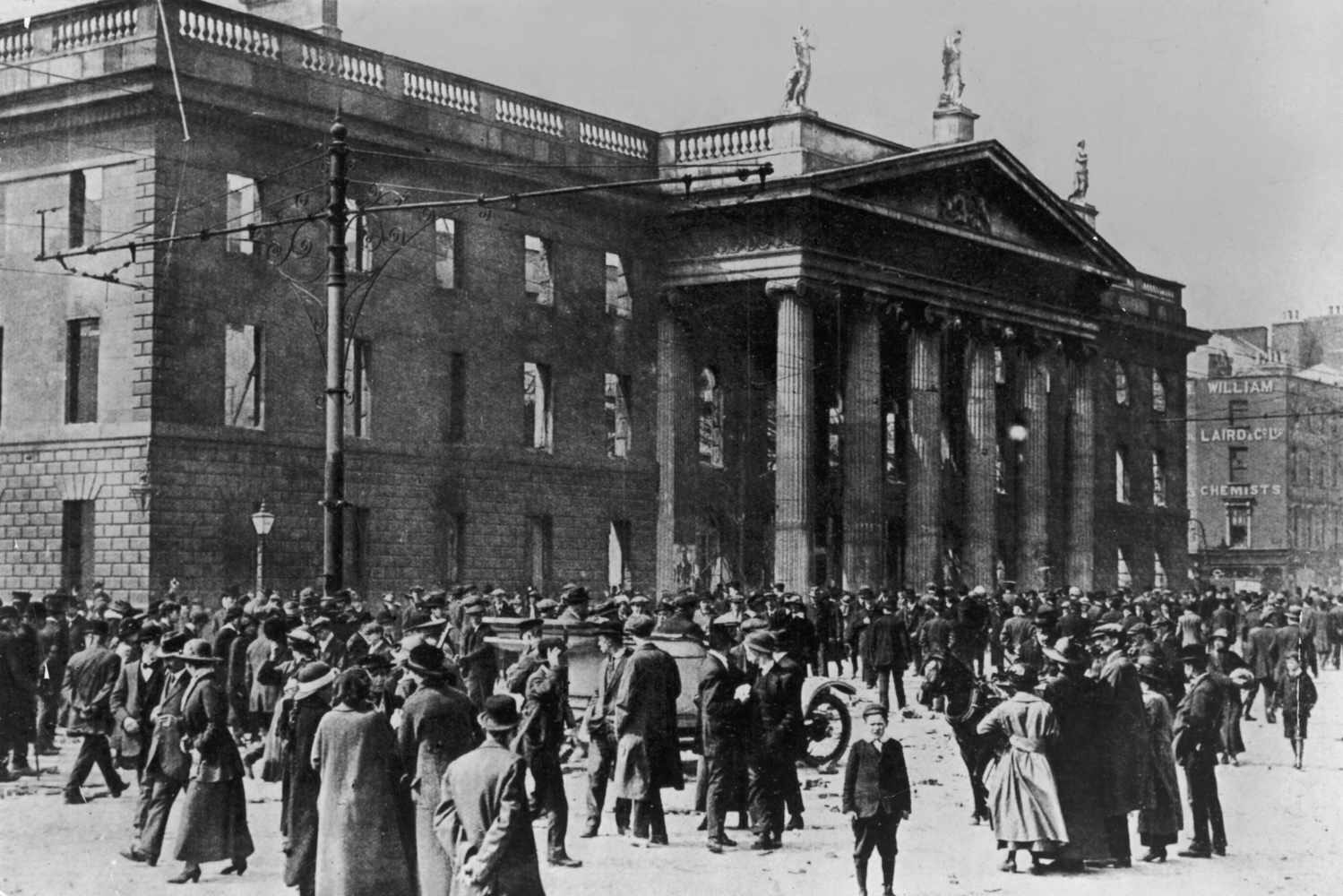Frank Doherty enlightens us on whether armed struggle is necessary in Ireland today….
“War; what is it good for?! Absolutely Nothing”… but death, destruction and the wrecking of lives. That’s why the default position for everyone should be explicitly anti-war, especially given its historical record as a category of human endeavour.
However human conflict does exist in today’s society both on the individual level and that of the polity or globalised society as witnessed in the drunk fight, the economic conflict between worker and boss, the Israeli-Palestinian conflict and the Troubles in our own country and various other imperialisms around the world. As Plato said, “[…] only the dead who have seen the end of war” and today it rages all over the planet; not just the types involving states and standing armies and territories but all war; taking as our broad definition human conflict, mediated or resolved through use of lethal violence.
So when to advocate violence or, put differently, under which circumstances if any should we break from a principle of nonviolence?
There are two elements to the question of the use of violence namely, is it right? (The ethics around violence) and secondly, are the intended consequences of the use of violence and their benefits likely to outweigh the unwanted effects such violence will likely bring about? These two questions are linked and under some ethical and moral codes, both cultural and religious we find them in contradiction depending on the different weights given to various considerations in specific situations. So there’s a multitude of answers on the question, in infinite possible situations depending on who you ask, about what situation and the degree to which they are disinterested in the particular situation. Rather than delve deep into different ethical codes and moral theories and doctrines and attempting to apply them to the many practical everyday situations, lets look at armed anti-imperialist struggles and revolutionary violence from a generally revolutionist, Marxist perspective.
The planet seems in a tumultuous fever manifest in the democratic uproar and outrages of the Arab Spring, the collapse of systemically important, global and national banking institutes in the economic recession together with a weakened and disorganised working class in the West and the existential crisis inherent in climate change.
That perennial question of Lenin’s, “what is to be done?” is as relevant as ever, and from this perspective the answer is revolution. A social and political revolution changing the social order from one of class and exploitation, to one without classes called communism. The details around this what aside, its the how we are interested in; more specifically the part of the how to make resistance or revolution, relating to violence.
In today’s class society the order is maintained by the state through its monopoly of violence enforced through the police and armed forces. This is typically understood under the dominant bourgeois ideology (or view of things), as proper and correct, legal and of course “democratically” mandated through holy writ, the constitution. It may even seem beneficial and just when looked at with respect to robbers and murderers, interpersonal violence between equal citizens etc. When taken from the perspective of the colonised, enslaved, exploited or oppressed, the state while protecting imperialist from colonised, master from slave, boss from worker and man’s dominion from women; becomes our enemy’s protector.
Thus, the state violence loses its facade of legitimacy and resisting it oppressive nature becomes not just legitimate but a moral imperative. Here we find the moral justification for revolutionary and/or anti-imperialist violence as a principle.
The second aspect to the use of violence is whether its goals are likely to succeed or have unwanted consequences and do these outweigh the benefits implicit in achieved goals? Or do such considerations warrant the breaking of the principle of nonviolence? Again, specific answers to changing circumstances and situations; we can however say that resisting and opposing oppression and exploitation in all its forms is a moral imperative, whether this takes the form of violent resistance is specific to each case or instance.
Taking the Republic of Ireland, today as our historical example should the working class return to armed struggle, in order to bring about a socialist republic and end to partition with a long term objective of dissolving our, then workers state into the nascent, classless global society? As James Connolly might have put it a century ago.
Right this moment? A most definite no. In the near future perhaps? Not likely. In order to achieve such goals, any goals, we need to be organised to achieve them. The Irish working class is very disorganized, some might say organised to contrary purposes. Rejecting the political process, the seanad referendum turnout a case in point, is a reflection of the disparity of opinion between government and ruling elite, and the people. This was a low order of engagement with the Political and not really resistance when compared to say, Dublin Bus workers and NCHDs who went on strike.
Violent resistance will always fail to achieve victory unless it has high participation rates and higher levels of popular support. There is no existing support for the violent overthrow of the government and social order in Ireland. There is however mass opposition to government policies, it just hasn’t been rendered into sustained and coherent mass organised resistance. The closest examples of contemporary mass working class organisations have been the national property tax and water charges resistance campaign and the traditional trade unions who for the most part are cooperating with, rather than resisting austerity. This is not to say however that this resistance won’t grow and over time become more experienced, more organised and more confident; that this matured resistance would not challenge power and be met with suppression and violence as history predicts. Finally, this is not to say a violent revolt will never be at the same time both morally warranted and worthwhile again in Ireland, just not anytime soon and until then we will see a growth in nonviolent civil disobedience and economic disruption in line with the countervailing neoliberal and austerity policies.

